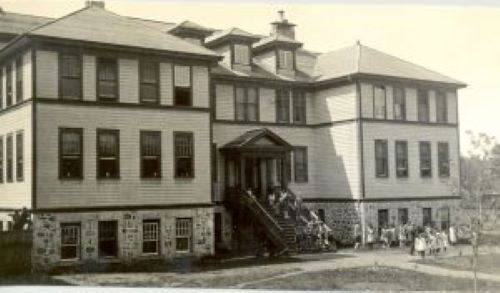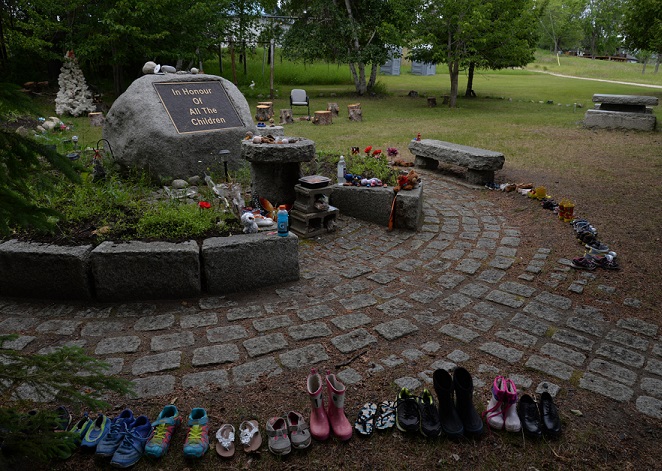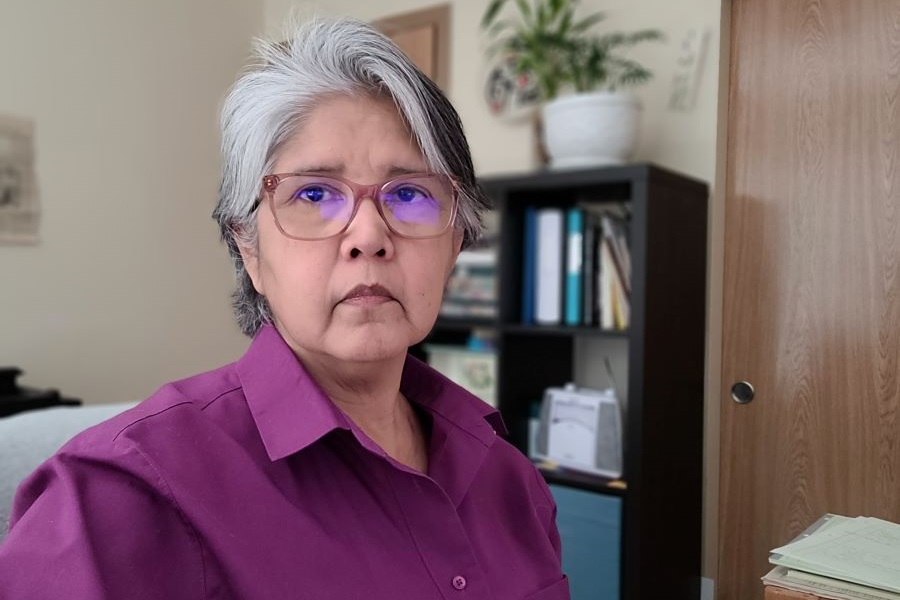Remembering the Tragedy of Indigenous Residential Schools
United Way of King County works toward a racially just community in part by recognizing oppressions heaped upon people who once occupied the lands we call home. This week marks the anniversary of the discovery of a mass grave containing more than 200 Indigenous children detained at the former Kamloops Indian Residential School in British Columbia.
The discovery prompted calls to inspect the grounds of former Indigenous boarding schools in the United States where children did not return home; the U.S. housed schools for Indigenous children nationwide, including schools in Washington state, Alabama, Connecticut and Oklahoma.
The discovery also prompted descendants of former boarding school attendees to relive some of the horrors told to them by parents, aunts, uncles and grandparents. Among them is Dora Joe, United Way customer service specialist, whose mother, aunts and uncles attended the former Alberni Indian Residential School (referred to as AIRS) on Vancouver Island, BC, which operated from 1900-1973.
Joe sat down with United Way to recount stories told to her about the school, whose physical and sexual mistreatment of Indigenous children was so rampant that a United Church of Canada report said charges were levied against AIRS’s worst abusers, prompting a judge in the case to characterize AIRS as “nothing more than institutionalized pedophilia.”
United Way of King County: How many of your family members attended residential schools?
Dora Joe: My mother had 11 siblings, one of whom had developed tuberculosis and was sent to what was referred to as tuberculosis hospital for six or seven years. My mother and the rest of the siblings were sent to Alberni Indian Residential School, referred to as AIRS, near the town of Port Alberni, BC.
They were sent there from their home, which was Sarita, and it’s a remote village in the Huu-ay-aht First Nation. My mother was born and raised on Vancouver Island and, when she was 19 or 20, she came to Seattle and stayed.
United Way of King County: What was the process for enrolling students in those schools, how did they get there and what was it like for them to take that trek to those schools?
Dora Joe: As I understand it, in the beginning, after first contact with the Europeans and the Europeans gained their foothold, they formed these schools, and at that time it was voluntary. They would come around to the different villages by boat and try to get Native families to send their kids. Where my mother’s from, their houses were right on the beach. The boats would come in, the Native families would see them and some families would take their kids and go further into the woods or into the mountains until the boats left.
By the time my mother was born [after the practice had become law] there were enough years and decades into that whole process that families said, “You know what? We know the drill.” They told their children, “This is where you’re going to go for school, and you’ll be back in the summer.” They were sent away during the school year, and they were sent home during the summer.

United Way of King County: How old was your mother when she first attended?
Dora Joe: She was in there for seven years, so I would guess that she went in at age 7 or 8. When she mentioned the school, she said she completed ninth grade. After she moved to Seattle and built her life down here, she got her GED, by my calculations, in her 40s.
United Way of King County: What were some of her stories about AIRS that stood out most?
Dora Joe: When I was a child, when she spoke about being in residential school, she always painted a favorable picture. She did such a good job that when I was in first or second grade, I asked her to send me there. But she just told me, “No, you can’t because they’ve closed; they’re not running anymore.”
She passed away in 2010, and it wasn’t until the last few years of her life that she would talk about the other side. She talked about one of the first times she saw her father cry: when one of her younger brothers was sent home during the summer with a black eye and swollen face, busted up from a beating he received at the school. She witnessed other brutalities, and she talked about being punished for speaking her [Native] language, but she never spoke about any specific thing that happened to her.
To think of all those parents and families, when their child didn’t return from the summer, and they were told, “Your child ran away, we don’ know where they’re at.” How does a system treat a beloved child as if they’re nothing?
Dora Joe, United Way customer service specialist
United Way of King County: What was it like for her years later when she returned to Canada?
Dora Joe: Later on, we traveled to Canada to attend a tribal meeting of some sort, and they usually begin with the people who know the language, will open up with a prayer in the language and introduce themselves in the language. I don’t speak it, so I asked my mother, “Do you know what they’re saying?” And she understood everything. But when it was time to converse back and forth, she said she couldn’t speak the language. It wasn’t until years later that I learned that there was a thing called silent speaker, where the trauma that these students endured around language made it psychologically impossible to speak the language. Even though they could hear and understand it, they couldn’t utter it.
United Way of King County: What was it like for you when the Kamloops story broke last year?
Dora Joe: It was an emotional odyssey. While it wasn’t about the specific school my mother and her siblings attended, it was still in the same province and all the same systems. It was heartbreaking. I was sad throughout last summer. I dropped out of several committees at United Way during that time because I couldn’t concentrate and my memory was affected. It was quite devastating. To think of all those parents and families, when their child didn’t return from the summer, and they were told, “Your child ran away, we don’ know where they’re at.”
I had utter sadness and then absolute rage: How does a system treat a beloved child as if they’re nothing? How are they so devalued that they can’t even tell their own families of their demise and have the decency to send them home?

United Way: What do you hope happens now?
Dora Joe: I hope for acknowledgement and understanding. As a daughter of a survivor, I’ve been acquainted with this subject forever. And I’m still learning. So, I’m sure the general public is not aware; they’ve been presented a certain picture, like most things. But what this does is to tell them, “That’s what you’ve been told, and here’s the rest of the story. It’s so much deeper than what you’ve been told, and this is how it’s affected all these lives.”


Comments